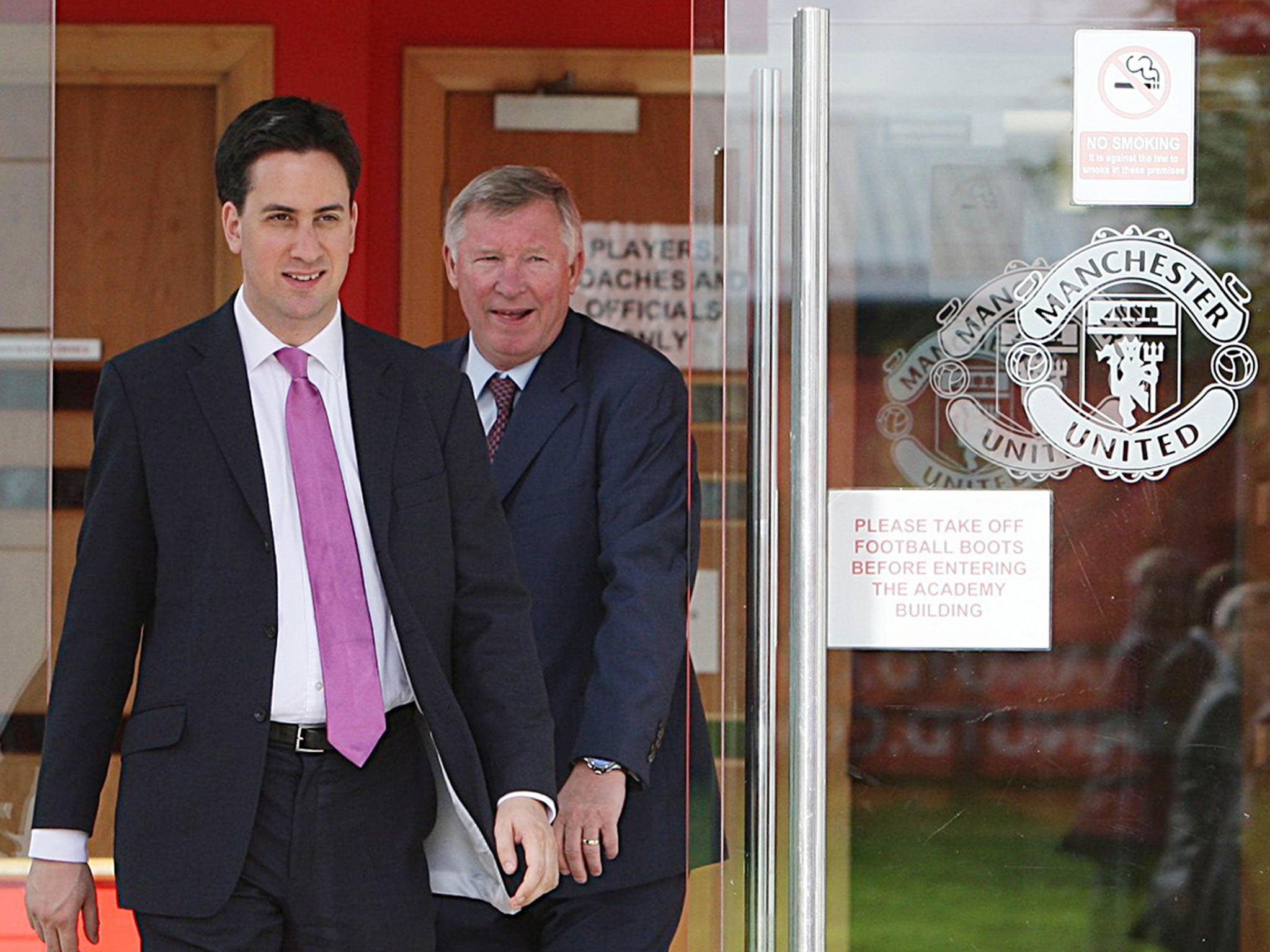Soccernomics: Ed Miliband's plans for regulation... explained through the wisdom of the Bundesliga
Football in Germany is a luxury designed for the many, not the few

When talking about matters of deep complexity, likely beyond the mind of a distracted 13-year-old, my father used to say something like, “imagine it was a football game”, before going on to construct an elaborate analogy somehow linking success in school, or the French revolution, to Arsenal’s defensive line. This continued to an age where I found it rather offensive. But the habit is a hard one to shake, and I’ve turned to football’s clarifying power again in the past fortnight, in an attempt to get a handle on Britain, Ed Miliband and socialism. Forgive me for sharing the result.
You will have already heard plenty about Red Ed and his attempt to drag Britain back to the doldrums of the ‘socialist’ 1970s. Exhaustingly, in their smear on his dead father, the Daily Mail warned Miliband would “drive a hammer and sickle through the heart of this country”. Many on the right, terribly phobic of government regulation, turn naturally to Communist dictatorships when faced with a proposal like Miliband’s cap on energy bills.
The leap is a large one. But if it’s okay to cite Russian megalomaniacs in the context of British politics, then I don’t see anything preventing me drawing parallels with German football teams. For three years now, since an Arsenal-supporting friend went to work in Berlin, and came back telling tales of cheap tickets, full grounds and an atmosphere quite beyond the best efforts of the corporate day-trippers at the Emirates, I’ve thought of the Bundesliga as some kind of modern utopia. And, if Stalin is towards the ‘bad’ end of practical socialism, then the Bundesliga can be placed at the opposite pole.
Strong regulation of the league has bred economic and sporting success. Fans own 51 per cent of every club, blocking out corporate speculators and dubious sugar daddies. In 2000, after Germany’s disastrous Euros tournament, every team was ordered to create an academy: today the league ripples with young German talent, a situation mirrored by the emphasis on vocational training in German education, and consequentially low levels of youth unemployment around the country.
Most impressive of all, the erstwhile Berliner assures me, is that the sense of a football team as part of its community is thriving. To borrow a Milibandian phrase, football in Germany is for the many, not the few. As Arsenal met eventual Champions League winners Bayern Munich in early March (and were pounded like schnitzel) I learnt that Bayern fans could purchase a season ticket for £104 – twenty pounds less than the upper tier of prices for a single Arsenal match.
Bayern go by the nickname Die Roten (the Reds). They could hardly be accused of playing Trotsky at left-back. All the same, their success – and that of the Bundesliga – shows that at least somewhere, not over too many rainbows, stern regulation isn’t such a bad thing.
Join our commenting forum
Join thought-provoking conversations, follow other Independent readers and see their replies
Comments